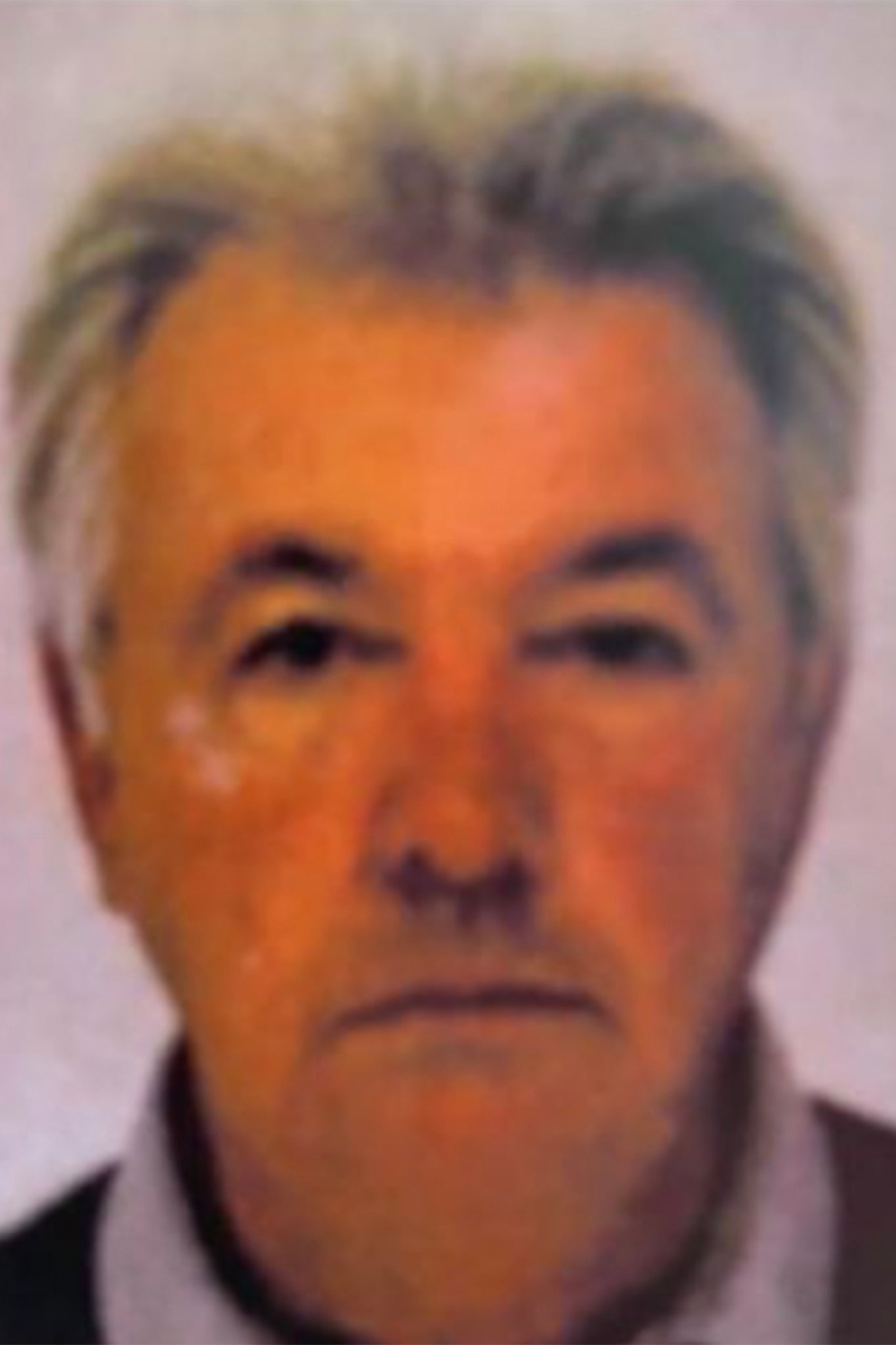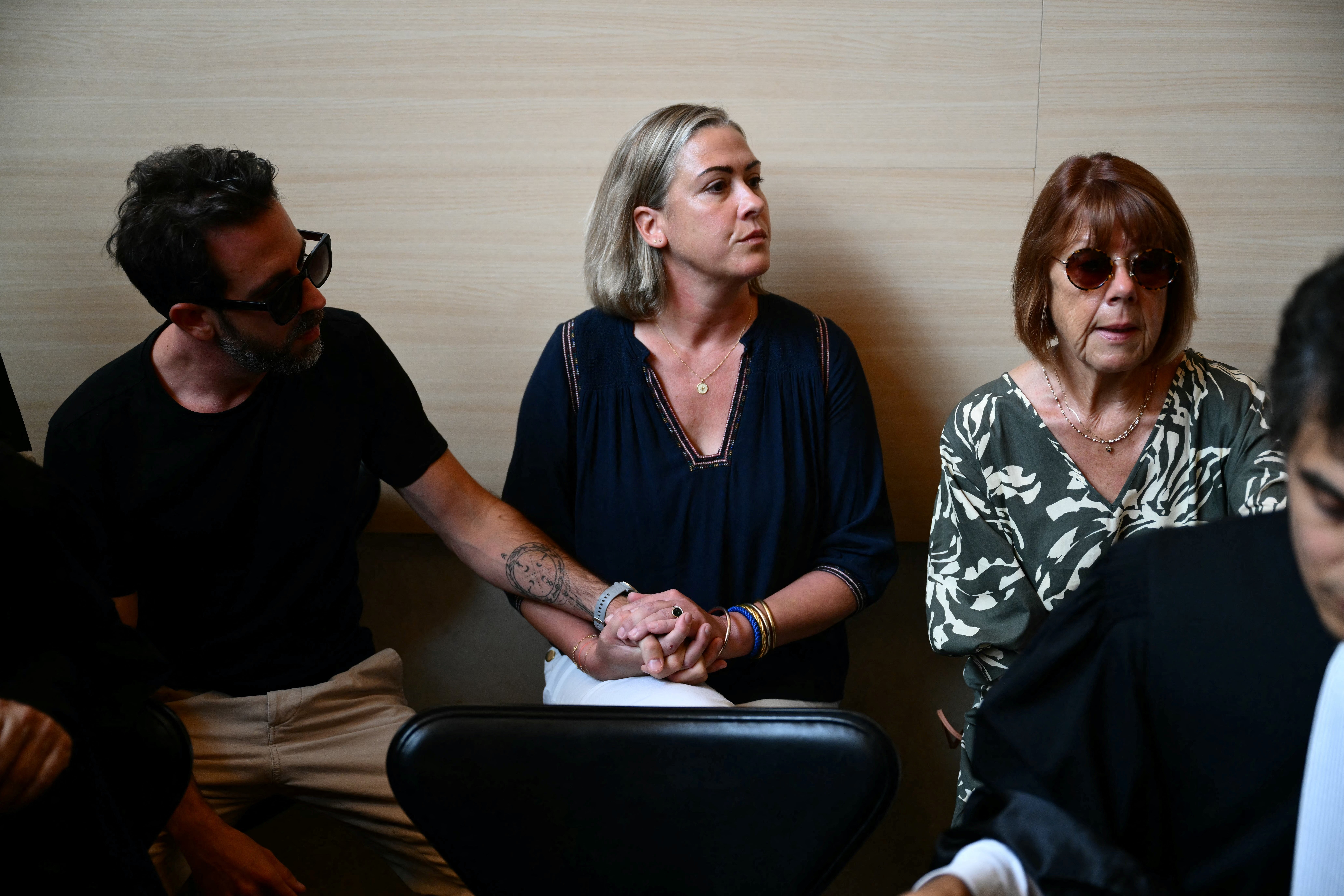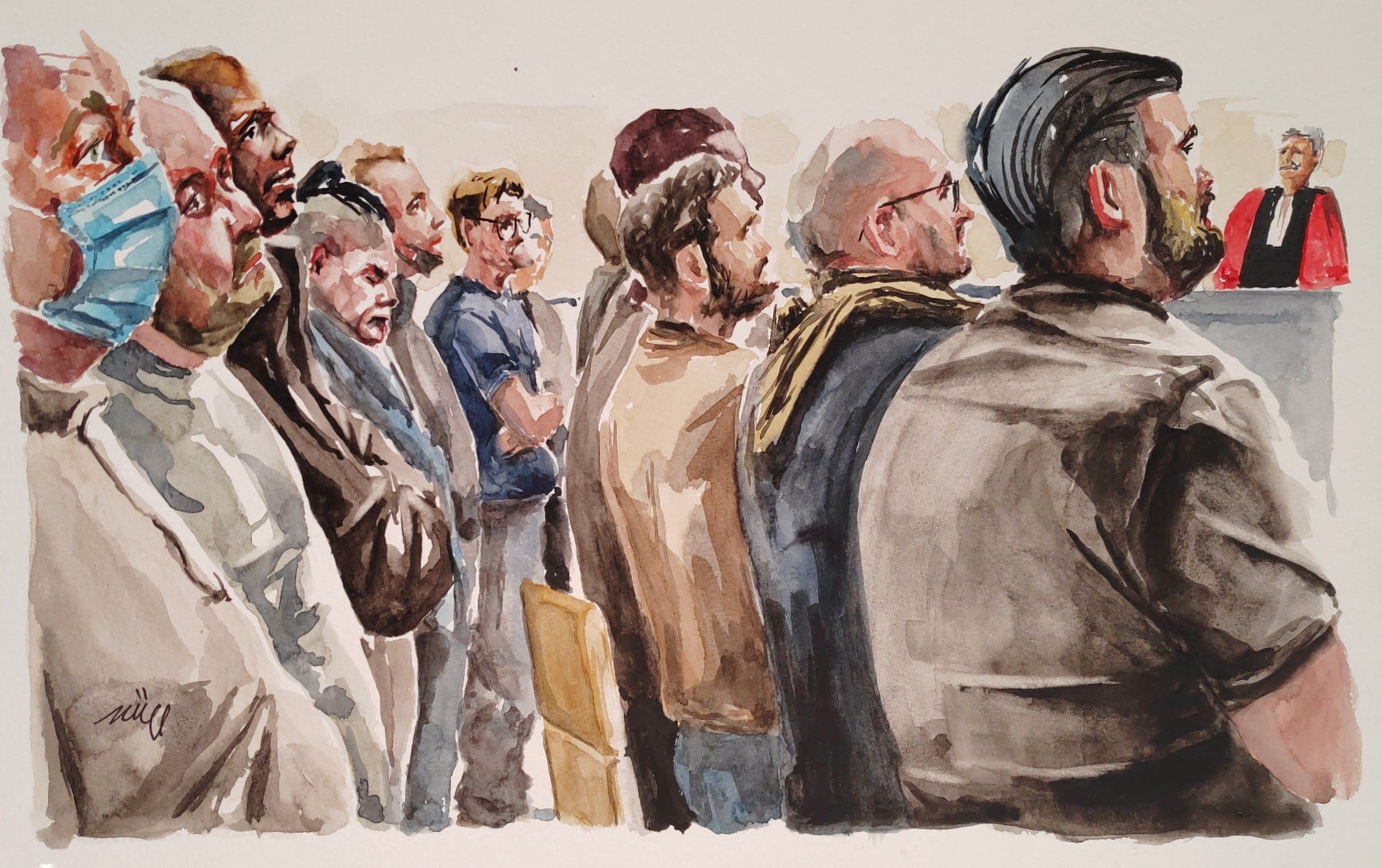The unanswered questions after Gisele Pelicot rape trial
Fifty-one men have now been brought to justice, but questions remain after the trial that has shocked France and the wider world
Your support helps us to tell the story
From reproductive rights to climate change to Big Tech, The Independent is on the ground when the story is developing. Whether it's investigating the financials of Elon Musk's pro-Trump PAC or producing our latest documentary, 'The A Word', which shines a light on the American women fighting for reproductive rights, we know how important it is to parse out the facts from the messaging.
At such a critical moment in US history, we need reporters on the ground. Your donation allows us to keep sending journalists to speak to both sides of the story.
The Independent is trusted by Americans across the entire political spectrum. And unlike many other quality news outlets, we choose not to lock Americans out of our reporting and analysis with paywalls. We believe quality journalism should be available to everyone, paid for by those who can afford it.
Your support makes all the difference.Following three months of harrowing legal proceedings, Gisele Pelicot’s ex-husband – and 50 men he recruited to sexually abuse her over the course of a decade – were this week sentenced for their crimes.
In a case that has shocked the world, Dominique Pelicot, dubbed the “Beast of Avignon”, was found to have spent a decade drugging his wife and organising for strangers he met online to rape her unconscious body.
An electrician nearing retirement, Pelicot’s crimes were discovered when he was caught up-skirting a woman in a supermarket, leading police to find his catalogue of more than 20,000 videos documenting the abuses he facilitated at their home in southeastern France.
On Thursday, he was jailed for 20 years as five judges returned their verdicts at Avignon’s Palais de Justice.
Of the 50 men who stood trial alongside him – three quarters of whom had families of their own, and worked in roles such as firefighters, journalists, nurses, and prison guards – 47 were found guilty of rape, two of attempted rape, and two of sexual assault. They were jailed for a total of 428 years.
Here are some of the questions that remain unanswered following this week’s verdict.
Could Gisele Pelicot return to the courtroom?
Having spent three months in court facing down the men who abused her, the 72-year-old has become an icon and symbol of courage to many, with scores of supporters waiting outside the court to applaud her each day.

Following the verdict, her lawyer Stephane Babonneau said: “At the start of the trial she said: ‘If I last two weeks, that will be a lot.’ In the end, she made it to three and a half months. Now, she is at peace, and relieved it’s all over.”
However it remains unclear whether Gisele could return to court if a number of those convicted are to appeal.
On Friday, French media reported that the lawyer for Redouan El Farihi, 55, and Ahmed Tbarik, 54, had lodged appeals after they were each found guilty of rape and sentenced to eight years in prison. Dominique Pelicot is also said to be considering appealing against his jail sentence.
While those convicted will have 10 days to lodge an appeal, Ms Babonneau told France Inter radio: “In any case, she has no fear of it [another trial], that is what she told us.”
Is Dominique Pelicot guilty of further crimes?
Investigators are now formally probing whether Pelicot could have been a serial offender prior to the crimes he committed against his wife between 2011 and 2020.

Two cold cases – the 1991 rape and murder of an estate agent in Paris, and the attempted rape of an estate agent in 1999 – have now been reopened, and Pelicot could potentially face trial in the future.
While he has admitted to assault and attempted rape in the 1999 case, after DNA testing following his arrest found his blood matched that found on the victim’s shoe, Pelicot has denied any responsibility in the 1991 case, although prosecutors argue the two cases are too similar to be coincidental.
What happened to Pelicot’s daughter?
In November 2020, as she and her brother were urgently moving their mother out of her family home after her father’s crimes were discovered, Caroline Darian was summoned to return to the police station to hear something that officers could only tell her in person.
Already reeling from the devastating revelations of her father’s actions, Ms Darian was shown two photographs among her father’s catalogue of a young woman on a bed dressed in lingerie. While she initially did not recognise the woman, the truth dawned on her as an officer pointed out she and the woman in the pictures both shared the same mole on their cheek.
“How could he have photographed me in the middle of the night without waking me? Did he also drug me? Worse still, did he abuse me?” Ms Darian later wrote in a memoir Et j’ai cessé de t’appeler papa (And I stopped calling you father).
Despite also being found guilty of this act, as well as taking indecent images of his daughters-in-law, Aurore and Celine, Pelicot insisted during the trial that he “did nothing” to his daughter, who was heard shouting to him: “I’ll never see you again! You’ll die alone like a dog!”

Despite his denials, the question remains over how far Pelicot’s abuse of his daughter went. Ms Darian remains convinced that her father not only looked at her “with incestuous eyes”, but also drugged her and may have physically abused her.
In court, she described herself as the trial’s “forgotten victim”, with no record of the abuse she believes took place.
How do Gisele Pelicot’s rapists view their crimes?
During the trial, many of the dozens of men found to have raped Gisele gave a multitude of attempts to justify their actions – insisting either that Pelicot had given his consent for them to rape his wife, that they were in fact also Pelicot’s unwitting victims, or that they had too much testosterone.
“She was waiting for the explanations, some kind of exchange, and she has not had that,” Gisele’s lawyer Antoine Camus told the court.

Describing their excuses as evidence of a societal “culture of rape”, Mr Camus later told The Guardian: “These absurd suggestions, prejudices, hypotheses, preconceived ideas … all deployed before our very eyes, and all at the expense of Gisèle Pelicot.”
It remains unclear why not a single man confronted with Gisele’s unconscious and clearly drugged body would raise the alarm to the police.
“The question is not why you went there, but why you stayed,” Mr Camus told the court.
How could the trial impact society’s ‘culture of rape’
Ms Pelicot has said that she made her momentous decision to waive her anonymity in order to allow the proceedings and evidence to be heard in open court so that “shame changes sides”.
It is a decision that has fuelled a national conversation in France, which campaigners hope will help to change attitudes towards rape and sexual violence.
The trial has also highlighted how French law and those who uphold it treat survivors of sexual violence and questions around consent.
While rape in France is defined as “sexual penetration, committed against another person by violence, constraint, threat or surprise”, with Gisele’s rapists’ prosecuted under the latter category, the trial has intensified discussions around whether France should add a clause explicitly around consent.
Marion Dubreuil, a court correspondent for radio station RMC who covered the trial near-daily, told The Guardian: “Rape is the most absolute crime; the most banal and the most common. Now we are speaking about it, people realise it is happening all the time. I see this in those around me. The trial has made them think.”
